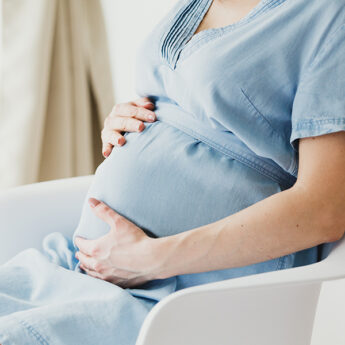- One in five Japanese women aged 20–29 are underweight
- Being underweight causes serious harm
- Strong social pressure to be thin
Welcome to January, the month in which we all make resolute vows to forgo the excess that we indulged in over the winter holidays for a healthier, more responsible lifestyle. Out go the frozen pizza and instant ramen, in come the salads and tofu. Such is our fraught relationship with food.
But how do the Japanese grapple with the issue? Japan is known worldwide for its traditionally healthy diet, but behind this tradition of balanced diets that are low in fat and high in nutrition lie some alarming modern statistics.
According to the most recent national survey published by the Ministry of Health, Labour and Welfare on those overweight (defined as body mass index (BMI) equal to or greater than 25 kg/m2), the rate of men was 31.3% and 20.6% for women.
Under pressure
Meanwhile, the percentage of underweight (defined as a BMI of less than 18.5 kg/m2) women has significantly increased over the past 10 years, with 11.6% of women falling into this classification in the 2016 report, compared with 9.1% in 2006. What is noteworthy is the particularly high prevalence of underweight young women, which means that approximately one in five Japanese women aged between 20 and 29 are classified as underweight.
The Japanese population’s supposed immunity to the global epidemic of obesity and being overweight is often seen as being due to genes and relatively healthier eating habits. But data shows that Japanese young women’s leanness is in no way a natural state, and it is attained by unnatural pursuits intended to achieve a too-thin standard.
Recent government statistics have shown that the average daily caloric intake for women between 20 and 29 is the lowest ever at 1,628 kcal. This is not only drastically lower than the standard intake for women of this age range, but, even more alarmingly, it is less than the national average calorie intake reported during the serious food shortages that occurred after World War II.
Regardless of being at a low, normal or high weight, for a young woman living in a society where one in five of her peers are abnormally skinny, it is very difficult not to feel and be affected by the strong socio-cultural pressure to be thin.
Serious harm
The implications of this worrying trend are significant. Whether the reason for wanting to be thin is for beauty, fashion or misguided beliefs about health, being underweight causes serious harm to the body, including amenorrhea, heart beat irregularities and deterioration in bone strength.
Researchers have proposed that the more this thin standard is internalised in the individual, the more dissatisfaction they will experience about their bodies, which can consequently lead to unhealthy weight control behaviours and negative moods. These not only result in decreased quality of life, but may also increase one’s risk for developing eating disorders, which are clinically diagnosable mental illnesses with significant, life-threatening physical and psychological complications.
What is the Japanese government doing about it? In 2000, the government first set up a policy to address this issue and announced that it will aim to reduce the rate of underweight young women to 15% or less, but what specific steps they have taken to achieve this remain unclear. Japanese firms have also recently taken up this issue and set up a working group last year to lobby for legislation to ban models in Japan who are excessively thin.
Finding help
However, negative body image is by no means exclusive to the Japanese. There is increasing pressure on all of us to be thinner, healthier and to have “perfect” bodies. This pressure is perhaps no more keenly felt than at this time of year, when we are all reaching for the smoothies with a sincere determination that “this will be the year I get in shape”. Women are under greater societal pressure than men to attain these “perfect” standards which, as we know, can impact women not just physically, but psychologically, too.
One of TELL’s New Year resolutions is to launch a body acceptance group for women where participants with body image concerns will be invited to actively examine the cost of pursuing the thin ideal and take action to resist the socio-cultural pressure to be thin. This group-based intervention is known to successfully reduce body dissatisfaction and the onset of eating disorders. To date, it has been delivered to 3.5mn girls and young women in 125 countries.
The first TELL groups will commence on 20 January, and those interested in signing up can get more information by contacting me, the TELL Eating Disorders Program coordinator, at eatingdisorders@telljp.com.






